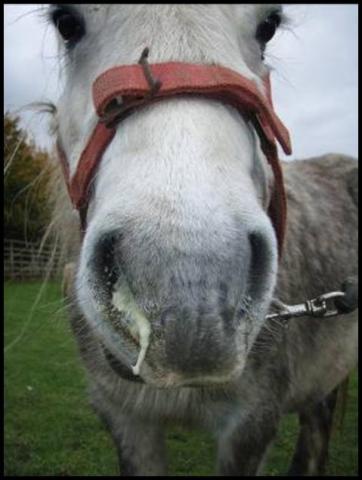Vaccinations are an important part of preventative health planning, with appropriate vaccination helping to protect your horse from a number of important, sometimes life-threatening diseases.
In the UK horses can be vaccinated against the following diseases:
However, the most common conditions to vaccinate horses against in the UK are influenza and tetanus. The other vaccinations can be added into your horses vaccine program depending on the perceived risk to your horse. If you want to discuss the need to use some of these other vaccinations, please contact the surgery on: 0131 664 5606.
If you compete your horse and require the latest vaccination information, please refer to the individual equestrian governing bodies for the latest news:
The British Show Jumping Association (BSJA)
British Equestrian Federation (BEF)
The International Federation for Equestrian Sports (FEI)
British Horse Racing Authority
Icelandic Horse Society of Great Britain (IHSGB)
How do I prevent my horse from catching Equine Flu?
Proper vaccination is essential in preventing equine influenza infection in your horse.
For all equine influenza vaccinations, Central Equine Vets recommend the following schedule for primary course and booster intervals in line with the manufacturer's guidelines:
Please remember that horses are unable to compete for the 7 days following a vaccination.
For competing, pony club, riding club etc, please remember to check with your association, specific governing body or competition venue of their vaccination requirements.
What actually is Equine Influenza (Flu)?
Equine influenza is caused by an Orthomyxo virus (H3N8). The virus is very intelligent, changing its immunogenic appearance (antigenic drift), which means that it can be hard for the immune system to consistently recognise the virus.
Generally, 2-3 year old horses are most at risk of the disease when first transported and mixed with other horses, e.g. after horse sales. Similar to the disease in humans, winter months tend to favour virus transmission, because at this time of year horses are often kept indoors, where ventilation is often not optimal.
The virus is spread by aerosol – i.e. coughing and sneezing. Once inhaled it attaches to the cells that line the respiratory tract, damaging its sensitive lining and the small hairs (cilia) which usually help to sweep the mucous up away from the lungs. This damage, caused by the virus, then allows secondary bacteria to invade the damaged respiratory tract, resulting in a worsening of the clinical signs experienced.
 Clincal Signs
Clincal Signs
The incubation period for the disease is 1-3 days. After this the following clinical signs may be seen in an affected horse:
Most horses recover in 10 days but a cough may persist for up to 21 days and some recovered cases may suffer chronic pharyngitis (inflammation of the pharynx (back of the throat)). In rare cases there can also be submandibular lymph node (glands located beneath the lower jaw), swelling or limb oedema (swelling). In exceptional circumstances some horses may die from severe secondary bacterial pneumonia or purpura haemorrhagica (oedema caused by swelling of blood vessels).
Diagnosis
The diagnosis of equine influenza requires investigation, as the clinical signs exhibited are also experienced in other types of infectious respiratory disease. Diagnosis is based on clinical signs and a rapid spread in a group of horses. Nasal swabs for PCR and/or virus isolation are most commonly performed to make a diagnosis. Other diagnostic tests include tracheal washes for virus isolation or paired blood samples taken 14 days apart, which show a 4-fold rise in serum antibody levels against the equine influenza virus over 14 days.
Treatment
Just like influenza in people there is no specific treatment for equine influenza. Supportive care, such as good hydration, rest and anti-inflammatory drugs, such as phenylbutazone (Bute) form the mainstays of treatment. Also important, is isolation of affected horses, to avoid further spread and making sure that the stables have good ventilation. Due to the damage the virus causes to the respiratory tract a prolonged period of rest is required (1 week for every day of fever), in order to prevent a chronic cough from developing.
Remembering Your Vaccinations
As a horse owner it is your responsibility to remember to vaccinate your horse at the required times. At Central Equine Vets, we know that it can be an easy thing to forget, so we endeavor to send you reminders about your horse’s vaccinations. We can do this by postcard, text message or e-mail – the choice is yours, just let us know!